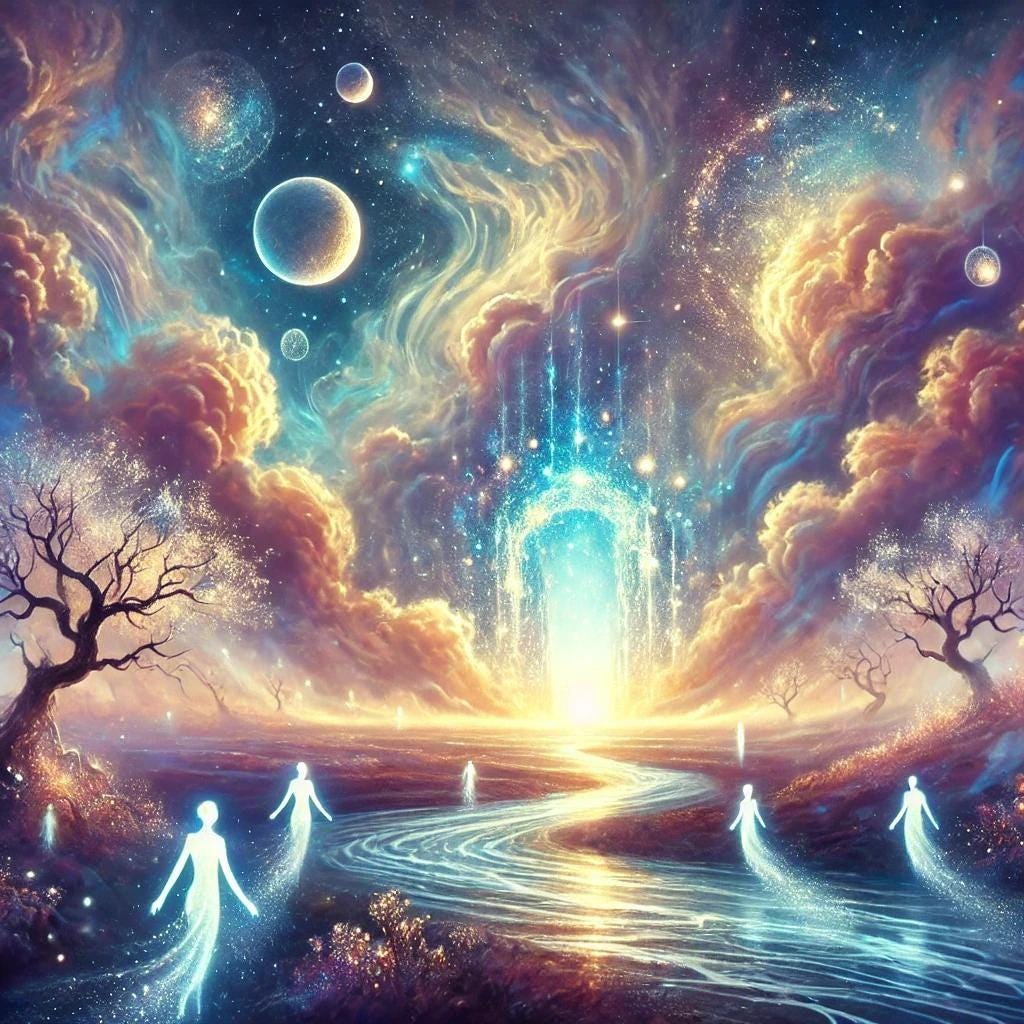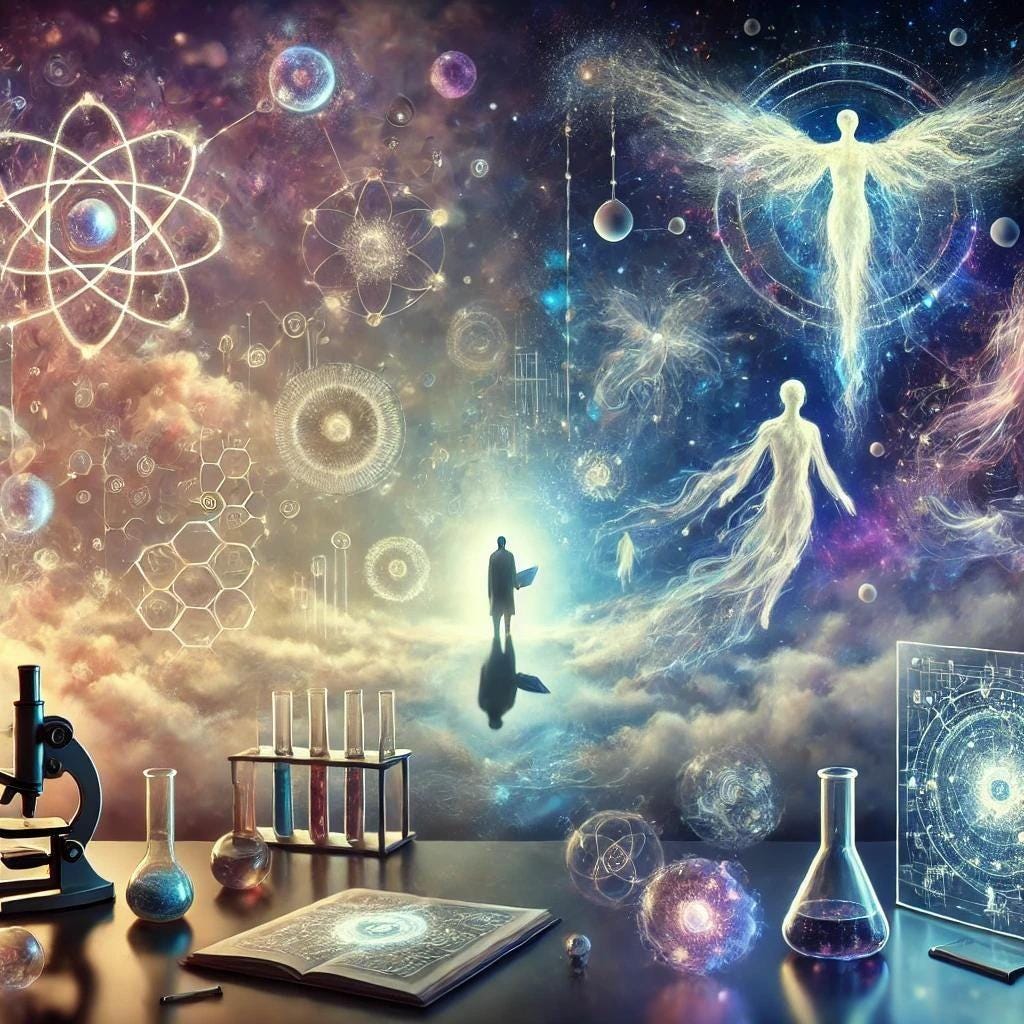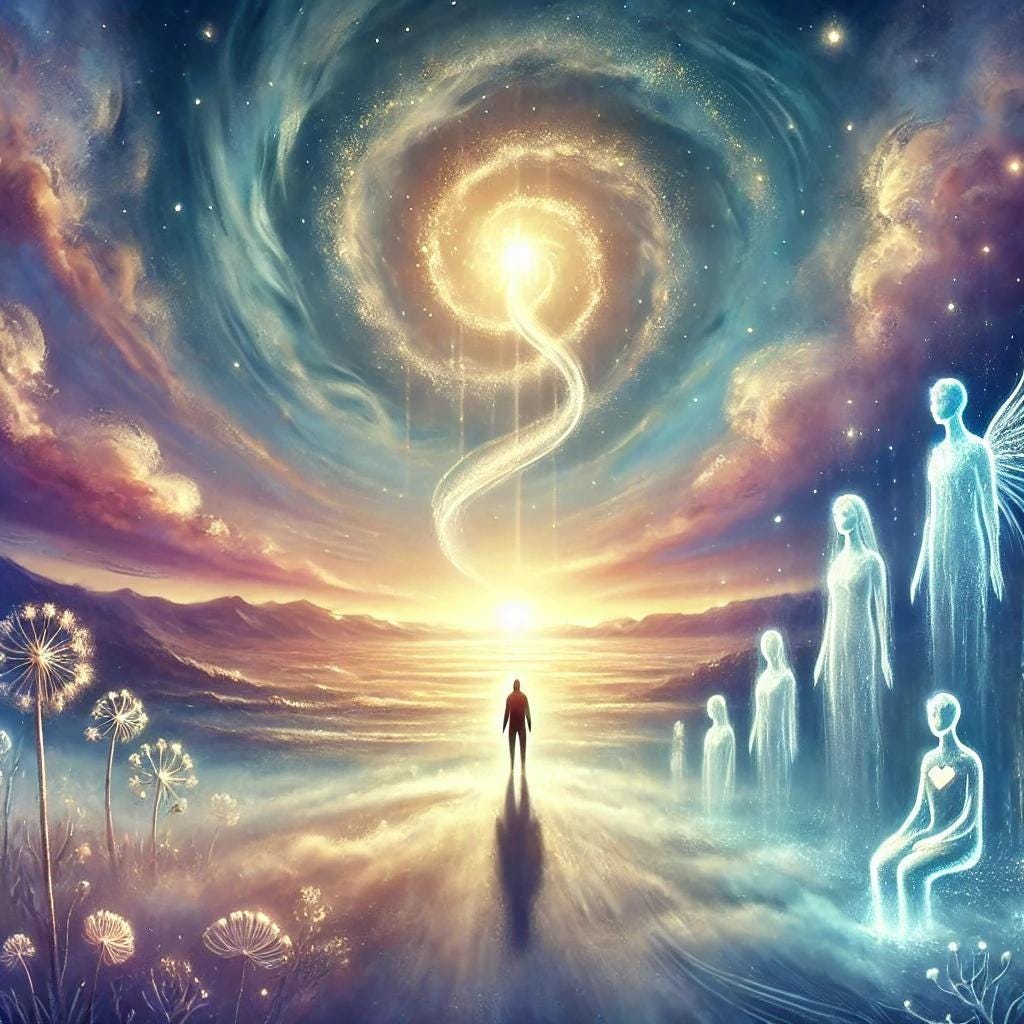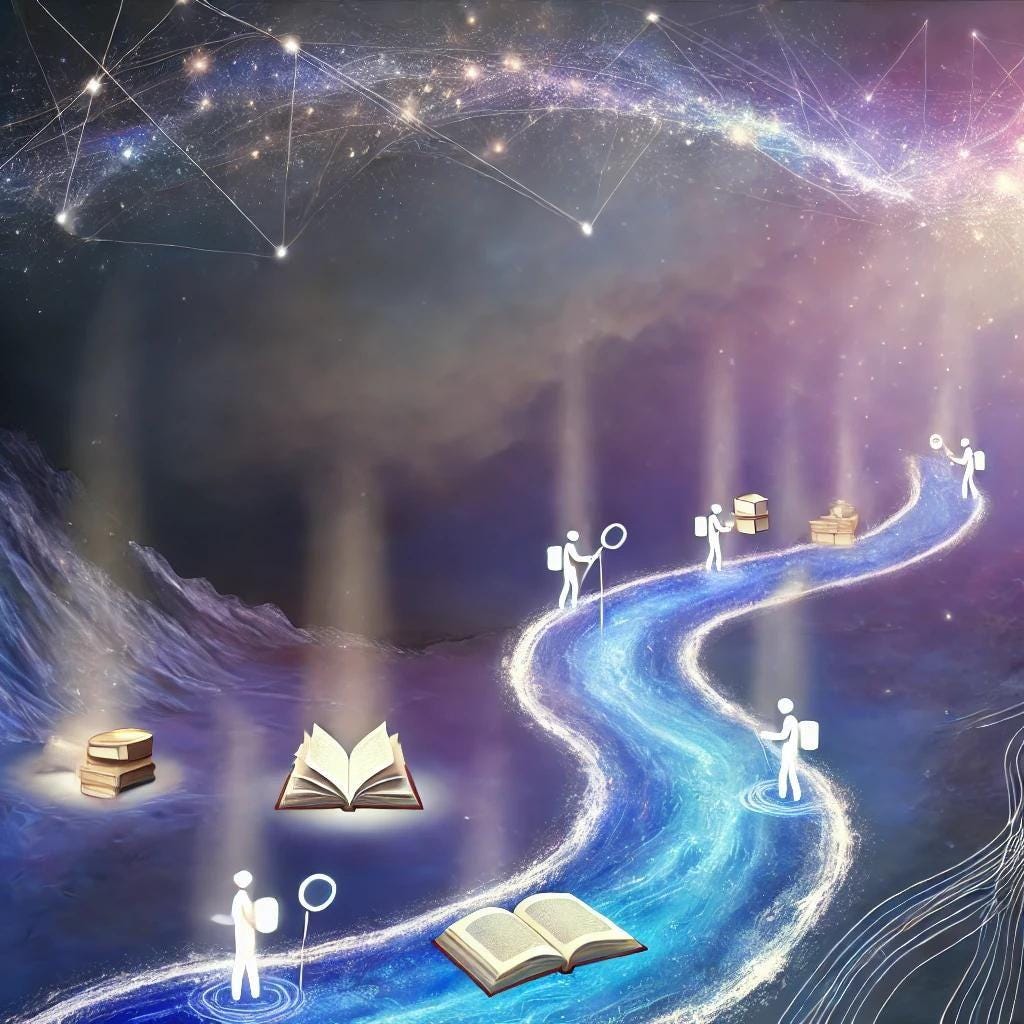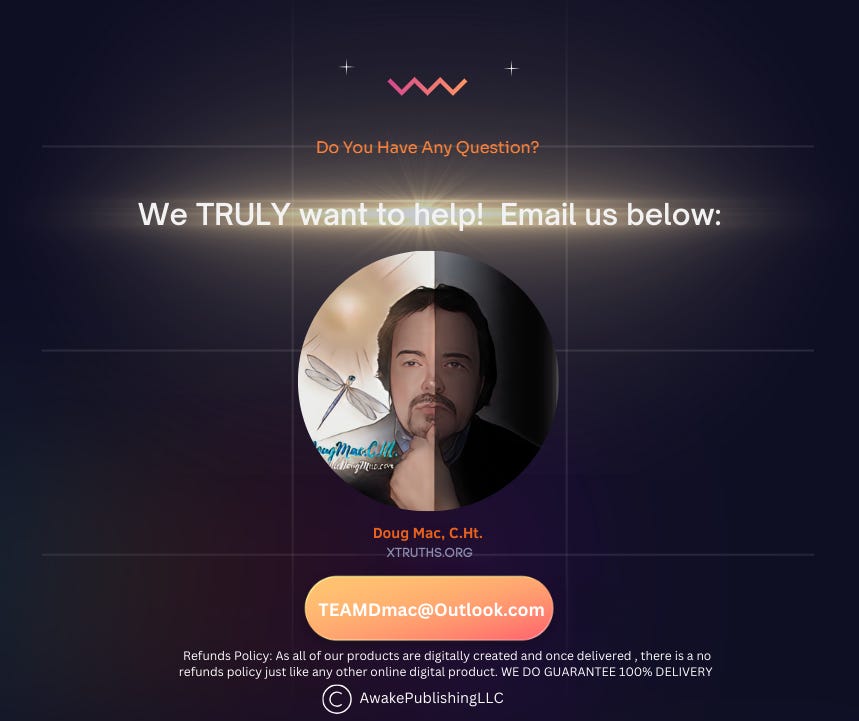Proof of the Afterlife: Unveiling Mysteries You Never Knew
By Doug Mac, Medical Science Investigative Journalist
Proof of the Afterlife: Unveiling Mysteries You Never Knew
By Doug Mac, Medical Science Investigative Journalist
Table of Contents
What is the Afterlife?
Defining the Afterlife
Historical Beliefs about the Afterlife
Modern Interpretations
Scientific Research on the Afterlife
Studies on Near-Death Experiences (NDEs)
Quantum Theories and Consciousness
Skepticism and Counterarguments
Religious and Spiritual Perspectives
The Afterlife in Christianity
Eastern Religions: Reincarnation and Karma
Spiritualism and Mediumship
Personal Experiences: Stories of the Afterlife
Real-life Accounts of Near-Death Experiences
Unexplained Encounters and Spiritual Visits
Is There a Common Theme?
Exploring the Evidence: What We Can Learn
Evaluating the Proof of the Afterlife
How to Approach the Topic with an Open Mind
What’s Next? Future Research and Understanding
What is the Afterlife?
Defining the Afterlife
The afterlife has been a subject of intrigue and mystery for as long as humans have walked the Earth.
But what exactly is the afterlife? At its core, the afterlife is the concept of existence beyond death.
It's the idea that while our physical bodies may perish, something more—our soul, consciousness, or spirit—lives on. This notion of continuity beyond our earthly existence has permeated cultures worldwide, giving rise to various interpretations.
For some, the afterlife is a paradise, while for others, it’s a place of judgment, reincarnation, or even nothingness.
Humans have always sought answers to what happens after we die, and our search has led to countless stories, myths, and beliefs. The very idea that our life here on Earth isn’t the end is both comforting and daunting, depending on one’s perspective.
What’s fascinating is that despite the wide range of interpretations, nearly every culture and religion has developed some concept of the afterlife.
Historical Beliefs about the Afterlife
Throughout history, societies have crafted intricate stories to explain what happens after death.
Ancient Egyptians, for instance, believed in a detailed journey to the underworld where one's heart would be weighed against a feather to determine their fate.
The Greeks imagined the souls of the dead crossing the River Styx into the underworld, ruled by Hades. Even the Vikings believed that those who died honorably in battle would ascend to Valhalla, where they would live eternally among gods and heroes.
These stories, while varying in details, reflect a common desire: a desire for continuity beyond our mortal life.
Whether it’s a heaven, hell, or reincarnation, the historical beliefs about the afterlife demonstrate humanity’s eternal curiosity about what awaits us after death.
Modern Interpretations
In today’s world, beliefs about the afterlife are still prevalent, although they have evolved alongside scientific and philosophical developments.
Some modern thinkers blend ancient spiritual beliefs with contemporary scientific understanding. Quantum theories, for example, have been explored to explain the nature of consciousness and its potential continuation after death.
Others maintain traditional religious beliefs, while a growing number of individuals identify as agnostic or atheist, questioning whether the afterlife even exists.
Interestingly, modern interpretations often reflect the blending of cultures and the rise of individualism, allowing people to explore their own personal beliefs about life after death.
Scientific Research on the Afterlife
Studies on Near-Death Experiences (NDEs)
One of the most compelling areas of scientific inquiry into the afterlife centers around near-death experiences (NDEs).
Many people who have come close to death report strikingly similar experiences: floating outside of their bodies, traveling through a tunnel of light, and encountering deceased loved ones or spiritual beings.
For decades, researchers have documented and studied these experiences, aiming to understand their nature.
Are they mere hallucinations caused by a dying brain, or do they provide a glimpse into an afterlife? Scientists have yet to reach a consensus, but some studies suggest that NDEs might indicate something beyond the realm of our current understanding of consciousness.
Quantum Theories and Consciousness
A growing number of scientists have started exploring quantum theories to explain phenomena related to the afterlife.
One such theory suggests that consciousness itself may not be tied exclusively to the brain but exists as a fundamental aspect of the universe, akin to energy.
Dr. Stuart Hameroff and physicist Sir Roger Penrose have proposed that consciousness could be based on quantum computations occurring within microtubules in brain neurons.
If true, this could imply that consciousness persists even after physical death—perhaps providing a scientific framework for understanding the afterlife.
Skepticism and Counterarguments
Of course, not everyone is convinced by the evidence pointing to an afterlife.
Many skeptics argue that NDEs can be explained by brain activity under extreme stress or trauma.
They point to the fact that oxygen deprivation, medications, and other factors can cause vivid hallucinations that feel real.
In my personal opinion, the “skeptics” have not done their research as I have and so, in their mind’s eyes…the afterlife is not “REAL” to them because they haven’t spent the time to dive into the subject or probably never had the desire or cause to want to learn more about it like maybe you and I have.
If it weren’t for all the large number and accidental deaths in my own family through childhood and adulthood I may have felt like the “doubters” . But I, like maybe you, have reasons to give it the attention it deserves.
While intriguing, there’s still much to be learned before any definitive conclusions can be drawn. But, from all the experiences in my personal journey since childhood, I DO , no, I KNOW, there is an energetic realm of existence beyond this “skin-suit” we wear.
As with many topics related to the afterlife, skepticism ensures that researchers maintain rigorous standards of evidence and pages of legal disclosures accompany them.
It’s kind of like watching all the painful insurance, car and truck commercials on television where at the end, all the legal disclosures are quietly given. In our society, the disclosures are supposedly there for our protection.
Sadly, some of the most impactful science discoveries about life (and the afterlife) are also BEING WITHHELD, I believe, intentionally, by the government “leaders” in the know, to keep the public order and prevent a mass disruption in our “day to day” average lives.
Religious and Spiritual Perspectives
The Afterlife in Christianity
Christianity presents one of the most well-known afterlife concepts: Heaven and Hell.
According to the Bible, those who accept Jesus Christ as their savior are granted eternal life in Heaven, while those who reject Him face eternal separation in Hell.
Throughout Christian history, countless depictions of these realms have emerged, often with vivid imagery of peace, joy, or eternal punishment.
Eastern Religions: Reincarnation and Karma
In contrast, Eastern religions such as Hinduism and Buddhism focus on reincarnation—the belief that souls are reborn in new bodies after death.
Karma plays a key role in determining one's future life; the actions performed in this life directly impact the circumstances of the next.
The cycle of death and rebirth, known as samsara, continues until a soul achieves liberation (moksha or nirvana), freeing them from the material world.
Spiritualism and Mediumship
Beyond traditional religions, spiritualism offers another lens to view the afterlife.
Spiritualists believe that the dead can communicate with the living through mediums, individuals gifted with the ability to receive messages from the spirit world.
Mediumship has been a controversial yet enduring aspect of afterlife beliefs, with stories of contact from the deceased offering comfort and closure to the bereaved.
Here’s my personal take on it.
WHY……would police departments all over the country use Mediums…..WITH SUCCESSFUL RESULTS in their cases…..if Mediumship were not truthful connections to another “realm” of understanding and information?
Personal Experiences: Stories of the Afterlife
Real-life Accounts of Near-Death Experiences
Time and again, people who have experienced NDEs share eerily similar stories: they speak of a bright light, a sense of overwhelming peace, and encounters with deceased loved ones.
These stories often defy logic and raise questions about what actually happens when we die.
One famous example is that of Dr. Eben Alexander, a neurosurgeon who, after a life-threatening bout with meningitis, experienced an NDE that profoundly changed his perspective on life and death. His account, along with many others, continues to fuel public fascination with what may lie beyond death’s door.
Unexplained Encounters and Spiritual Visits
In addition to NDEs, many people report unexplained encounters with deceased loved ones. These visitations often occur in dreams or waking moments, where the presence of a loved one is felt so vividly that it leaves a lasting impact.
While skeptics might dismiss these events as mere imagination or wishful thinking, those who experience them often believe they are genuine connections from beyond the grave.
Exploring the Evidence: What We Can Learn
Evaluating the Proof of the Afterlife
While definitive proof of the afterlife remains elusive, the combination of NDEs, personal accounts, religious teachings, and emerging scientific theories provides food for thought.
The truth may lie somewhere between science and spirituality, (NOW YOU KNOW WHY I CALL ALL MY WORK PROJECTS, “X-TRUTHS” …. where open-minded inquiry allows for a deeper understanding of life beyond death.
How to Approach the Topic with an Open Mind
Approaching the subject of the afterlife requires both an open mind and a critical eye. By balancing belief with inquiry, we can better navigate this mysterious terrain.
As science continues to explore consciousness, perhaps one day we’ll have clearer answers.
What’s Next? Future Research and Understanding
While we don't yet have concrete answers, the study of the afterlife is far from over. The fields of neuroscience, quantum physics, and spiritual studies are continually advancing, and with them, our understanding of what it means to be conscious and how that relates to life after death. As technology evolves, we may even uncover new ways to investigate and potentially verify experiences like NDEs.
One area of future exploration may involve looking deeper into the phenomenon of consciousness. If researchers can prove that consciousness exists independently of the brain, it could provide solid evidence of life beyond death. Until then, we can continue to rely on personal experiences, faith, and scientific curiosity to explore these profound questions.
WANT MORE RELATED NEWSLETTERS LIKE THIS?
JUST VISIT www.XTRUTHS.org that will take you to Doug Mac’s BIO AND LINKS PLATFORM where you can CHOOSE ANY TYPE OF MEDIA to READ, LISTEN, WATCH & ENJOY MORE JUST LIKE TODAY’S NEWSLETTER!
Conclusion
The mysteries surrounding the afterlife continue to intrigue and challenge us, blending science, spirituality, and personal experiences into a complex web of unanswered questions.
While definitive proof remains elusive, the stories of NDEs, quantum theories of consciousness, and ancient spiritual teachings provide us with fascinating insights into what may lie beyond death.
What we do know is that the question of life after death has sparked interest across time and cultures, driving both scientific research and philosophical thought.
Whether you’re a believer in the soul’s eternal journey or a skeptic, the conversation around the afterlife forces us to ponder some of life’s biggest questions.
And as we keep searching for answers, the possibility of uncovering the mysteries of the afterlife grows ever closer.
Frequently Asked Questions (FAQs)
1. Is there any scientific proof of life after death?
While there is no definitive scientific proof, many researchers are exploring phenomena like near-death experiences (NDEs) and quantum theories of consciousness, which suggest that consciousness may continue after death. However, skeptics remain, and the debate is ongoing.
2. What are near-death experiences (NDEs)?
NDEs are profound experiences reported by individuals who have come close to death. Common themes include out-of-body experiences, traveling through tunnels of light, and meeting deceased loved ones. While some researchers view NDEs as evidence of an afterlife, others attribute them to brain activity under stress.
3. How do different religions explain the afterlife?
Different religions offer varied interpretations of the afterlife. Christianity, for example, speaks of Heaven and Hell, while Eastern religions like Hinduism and Buddhism discuss reincarnation. In spiritualism, many believe that the dead can communicate with the living through mediums.
4. Can quantum physics explain the afterlife?
Quantum theories are being explored as a potential explanation for the afterlife. Some scientists believe that consciousness could exist as a form of energy that persists beyond death. However, these theories remain speculative and require further research.
5. How can I communicate with a deceased loved one?
Many people report feeling the presence of deceased loved ones in dreams or through unexplained encounters. Some turn to mediums who claim to facilitate communication with the dead. While personal experiences vary, these connections often bring comfort and closure.
CHECK OUT OUR OTHER NEWSLETTERS AS WELL!
JUST VISIT www.XTruths.org







